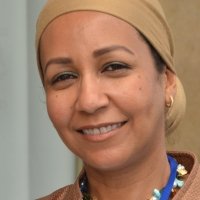Book Talk: The Political Economy of Education in the Arab World
The authors of The Political Economy of Education in the Arab World are among the first to investigate the connection between authoritarian political economies and the architecture of national education systems across the region. Presenting studies from several Arab countries, as well as comparative perspectives from Asia and Latin America, they show that efforts to improve education have not been met with results. According to their analysis, the failure to match expenditures to outcomes is due to the political decisions shaping education. They argue that elites are invested in preserving “limited-access orders” and encouraging acquiescence to authority and conservative attitudes over critical thinking.
In reflecting on the genesis of the book, Hicham Alaoui, Research Associate at the Weatherhead Center for International Affairs at Harvard University and Founder and Director of the Hicham Alaoui Foundation stated, “Everywhere, the results of national educational systems have been, at best, underwhelming… beyond achieving basic literacy, the quality of Arab education has lagged behind in many ways,” adding that universities across the region fail to produce graduates with the skills to integrate into the market.
Robert Springborg, Research Fellow at the Italian Institute of International Affairs and Adjunct Professor at Simon Fraser University, argued the patronage-based political system in Middle East and North Africa countries narrows opportunities for widespread, meaningful education reform, noting, “The key obstacle to economic growth is the nature of the political-economic regimes… Civics are taught from the point of view of trying to reinforce patriotism and loyalty to specific regimes.” In turn, the meritocratic underpinnings of the education system are weak, a standard of education in most other parts of the world.
Ishac Diwan, Professor of Economics at Paris Sciences et Lettres, put forth that in addition to lacking necessary skills to compete in a globalizing economy, Arab education instills, “conservative political and social values,” even compared to less educated countries. He rejects the argument this can be attributed to Arab culture, instead tracing it, “to the way in which the educational system is organized.”
In her case study on Tunisia, Lindsay Benstead, Director of the Middle East Studies Center at Portland State University,contended, “The educational system in Tunisia is characterized by two features: centralization and weak rule of law.” Socioeconomic disparities are a prime determinant in a student’s access to and quality of education. Benstead argued empowerment of local actors through decentralization of education is critical to reform in Tunisia.
Responding to the conclusions of the book, Safaa El Kogali, Manager for East and Southern Africa in the Education Global Practice at the World Bank, remarked that the authors embarked on a critical project that is mostly lacking in current literature. Yet, she stated they could have dug deeper on certain aspects of their research given that, “The education process is really a complex set of factors and actors that interact to produce education outcomes, and these operate on so many different levels and among so many different people that singling out government actors misses a lot of nuances.”
Elite-led education
While education systems should be designed to promote independent thinking, “Across the region, governments launch campaigns for education not to emphasize critical thinking, but as a pillar of ideology,” stated Alaoui. Dr. Springborg echoed this sentiment in arguing MENA regimes are, “trying to recruit loyalists… Thus, education has taken a very authoritarian turn.”
The lack of general preparedness of young Arabs places them on a challenging track following graduation. In tandem with unhealthy labor markets, their prospects are bleak. During the Structural Adjustment Programs of the 1980s and 1990s, “regimes selectively liberalized parts of their economies without changing their core systems,” contended Diwan. With crony capitalism driving the economy rather than competition, “there is little supply of good jobs and thus a lower return on education,” he added.
The path toward reform
The panel stressed that diffused, comprehensive reform is vital for correcting education systems and outcomes in the Arab world. El Kogali contended this requires transformation of education, rather than tweaking it, arguing, “If you want to see any educational change, the public and all stakeholders need to be involved in the project.” A critical step to pave the way for these types of initiatives is the government loosening its grip over education systems. Alaoui noted Arab regimes desire systems that encourage growth and a healthy labor market yet struggle to relinquish control.
A promising resource for improvements in education outcomes is technology. EdTech presents the potential to penetrate rural areas and poorer segments of society that experience the brunt of education systems. Technology can also connect Arab education systems to the global sphere, improving standards across the region. El Kogali expressed approval that technology can increase the accuracy of results and reporting from education systems – if teachers are properly trained to use it. Alaoui was somewhat more circumspect, however, cautioning that the rush to EdTech could resemble the past trend toward privatization in order to “fill the gap” left by government, and ultimately worsened inequality.
Speakers



Associate Professor of Political Science, Mark O. Hatfield School of Government, Portland State University & Director, Middle East Studies Center (MESC), Portland State University


Moderator

Hosted By

Middle East Program
The Wilson Center’s Middle East Program serves as a crucial resource for the policymaking community and beyond, providing analyses and research that helps inform US foreign policymaking, stimulates public debate, and expands knowledge about issues in the wider Middle East and North Africa (MENA) region. Read more


The MENA Workforce Development Initiative
The Middle East and North Africa Workforce Development Initiative (MENA-WDI) aims to assess both current and projected challenges facing the region in developing the workforce and the implications for peace and stability. Read more
